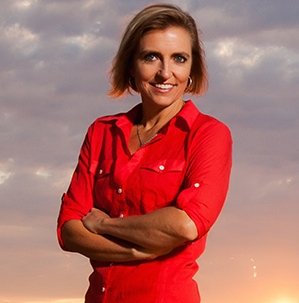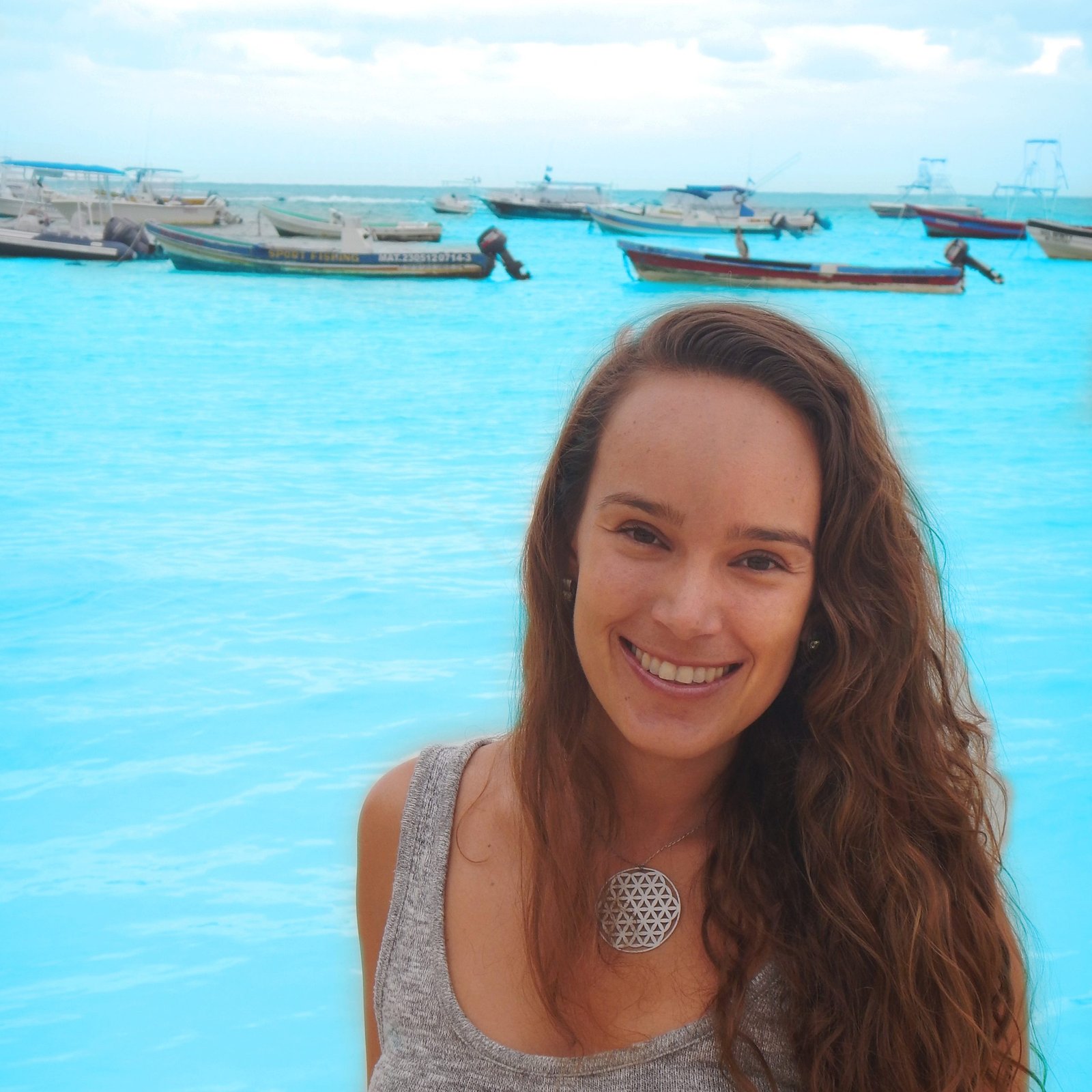
Melanie McField
Melanie McField is the founder and Director of the Healthy Reefs for Healthy People Initiative (HRI), a multi-institutional effort that has grown to include 73 partner organizations working to better understand and conserve the Mesoamerican Reef. The program has been underway in Belize, Guatemala, Honduras and Mexico for fourteen years, producing six Mesoamerican Reef Report Cards that track the health of the reef and four Eco-Audits that evaluate each country’s reef management effort. The collaborative, evidence based adaptive management cycle includes strategic communications aimed at supporting needed policy interventions and testing novel science-based solutions or restoration interventions. Melanie began her work in Belize as a Peace Corps volunteer/field biologist with the Hol Chan marine reserve. She then earned a PhD in Marine Science from the University of South Florida, based on evaluation of the influence of disturbance and management on reef community structure in Belize. In 2001, she worked with the World Wildlife Fund, and since 2006 with the Smithsonian Institution. She has over 40 peer reviewed research papers, numerous book chapters, technical and public-interest publications and has mentored 13 graduate students. She has received several awards, including the 2021 Conservation Award from the International Coral Reef Society and participated in numerous television news broadcasts and nature-based documentaries to broaden support for reef conservation awareness.
Email: mcfield@healthyreefs.org

Marisol Rueda Flores
Marisol Rueda Flores is the Communication Consultant for the Healthy Reefs for Healthy People Initiative, based in Playa del Carmen, Mexico. She is in charge of managing social media for the 4 Mesoamerican countries as well as the website, participating in documentaries, setting interviews for all media outlets, assisting with technical writing of reports and translation of donor reports and grants and liaising with the partners to participate in conservation events and campaigns. She is AAUS certified and AGRRA Instructor certified for fish monitoring. She has participated in diverse environmental education programs focusing on environmental education, ecology and biology of marine invertebrates and their substrates, cetaceans, sea turtles, tortoises and vegetation in different countries like Mexico, Costa Rica and Galapagos Islands, Ecuador. She was our Mexico Coordinator for 7 years (2010-2017) and worked in public policy for several themes related to reef conservation, such as protecting key species, improving water quality and the decrease in the consumption of single-use plastics. She earned her degree in Biology from Morelos State University in 2004 and later completed her Masters in Science on Marine Resource Management in 2007 at CICIMAR-IPN (La Paz, B.C.S., Mexico). She studied blue whales and collaborated as research assistant in different projects from population structure, fatty acids and isotopic change of several cetaceans in the Gulf of California. Her drive is sharing information with other people with effective communication and has been a passionate scuba diver since 1999. Her favorite hobbies are photography, underwater modeling, traveling and getting to know new cultures, extreme sports, dancing, and meditation.
Email: rueda@healthyreefs.org

Mélina Soto
Melina Soto is the Mexican Coordinator for the Healthy Reefs Initiative and is based in Puerto Morelos. She is responsible for the connection between the different HRI Mexican partners, organizes collaborative activities such as monitoring and eco audits, mobilizes resources, designs and gets involved in pilot projects, citizen participation and advocacy to improve conditions in which coral reefs, and the communities that depend on them, live. Influenced since her first steps by her parents, sailing around the Caribbean, Mélina grew up passionate about the marine environment. She first earned her Bachelor of Science in Marine Environment Sciences in a binational program between Wales and France at the University of South Wales and the National Institute for Marine Sciences. She obtained her Master’s of Science in Marine Biology at the Institute of Marine Sciences of UNAM, with an ecotoxicology project showing endocrine disruptive effects of sunscreens on the charismatic damselfish sergeant major (Abudefduf saxatilis). Mélina has been working in coral reef restoration programs with the National Fisheries Institute in Quintana Roo, rescuing damaged corals, collecting coral larvae and planting them back on impacted reefs. She has been the communications and development assistant for the Mesoamerican Reef Leadership Program, a dynamic leadership program of the Mexican Fund for the Conservation of Nature. She is CMAS, AAUS and AGRRA certified for fish monitoring. When Mélina is not diving or involved with the TEDxCancún organization, she enjoys climbing, sharing quality time with friends, family and her animals, and reading, reading, reading.
Email: soto@healthyreefs.org

Raphael Martinez
Raphael Martinez is currently serving as the Belize Country Coordinator for the Healthy Reef for Healthy People Initiative. His academic background includes a bachelor’s degree in Natural Resource Management from the University of Belize, and he’s currently in the final stages of completing a master’s degree in Disaster Risk Management and Climate Governance from Isabella I Private University in Spain. His professional journey includes a significant tenure as the Reserve Manager at Glover’s Reef Marine Reserve. During this time, he held the distinction of being the youngest Marine Reserve Manager, where his responsibilities encompassed team management, active surveillance of reserve activities, enforcement of fisheries laws and regulations, and active participation in research and data collection initiatives. In addition to his core responsibilities, he has engaged in various specialized training programs, including Stony Coral Tissue Loss Disease Monitoring and Treatment, Seaweed Cultivation, Rapid Response & Emergency Reef Restoration, and AGGRA Fish Surveyor training, among others. Beyond his professional achievements, he holds a license as a Boat Captain and is an enthusiastic diver. His unwavering passion for environmental conservation has been a lifelong driving force, and he’s thrilled to be a valued member of the HRI team. During his leisure time, he enjoys socializing with friends and loved ones, partaking in karaoke, and engaging in various sport activities such as basketball, volleyball, and softball.
Email: martinez@healthyreefs.org

Ana Giró Petersen
Ana Giró Petersen is the Guatemalan Coordinator Healthy Reefs for Healthy People Initiative since 2011 and is based in Guatemala City. In this role, she is in charge of data collection and training of the benthic and coral components of the AGRRA methodology. During her years in HRI she has worked closely with partners in Guatemala and the MAR to achieve the common goal of improving reef health through collaborative efforts of conservation. She is responsible for carrying out different activities such as: report cards of the health of the MAR, eco-audits, mobilizing resources and execution of projects linked to coral reefs. Ana is an innovative scientist with a passionate commitment to marine conservation with more than fifteen years of experience in developing projects related to ecosystem health, exploration, monitoring and mapping of the reefs in the Caribbean Coast of Guatemala. Earned her degree in Marine Science and Aquaculture and Masters Degree in Marine and Coastal Science from the University of San Carlos. Ana worked as a professor for the University of San Carlos of Guatemala from 2009 – 2013, teaching oceanography and coral reef ecology, and has also worked in different projects for the United States Agency for International Development (USAID), Global Environmental Fund (GEF) and local NGOs. Ana is part of the advisory committee of the MAR Sustainable Fisheries Network and is a co-founder of the organization Pixan’Ja. She is a passionate scuba diver, loves underwater photography and exploring new reefs.
Email: giro@healthyreefs.org

Claudia Alejandra Guerrero
Claudia Guerrero studied biology at the National Autonomous University of Honduras, worked on research and data collection expeditions with the Operation Wallacea organization from 2010- 2016 in countries such as Honduras, Peru and Mexico together with scientists and students from different parts of the world. She started working at the Center for Marine Studies (CEM) in 2017 to 2022 where her last role was the coordinator of the biological component working hand in hand with different fishing communities, marine governance committees financed by organizations such as Fauna & Flora International (FFI), Mesoamerican Reef Fund (MAR Fund), Inter-American Foundation (IAF), Rare, Darwin Initiative, and Paul M. Angell Foundation, implementing programs for the responsible use of coastal marine resources based on data collection for informed decision making, with the World Wildlife Fund (WWF) Ready Coasts project, promoting initiatives to protect ecosystems such as reefs and mangroves based on the ecosystem services they provide in the face of climate change. She is an instructor for post-storm reef response brigades, an initiative promoted for the Mesoamerican Reef System (MAR) region by MAR Fund and The Nature Conservancy (TNC), forming part of the brigade committee of the Bay Islands Marine National Park as deputy coordinator. In September 2022, she joined the staff of the Healthy Reefs Initiative as Coordinator in Honduras, implementing scientific tools at the service of people linked to the sea, in the different advocacy spaces, strengthening the networks of authorities, non-governmental organizations, the scientific community and the population.
Email: guerrero@healthyreefs.org

Israel Muñiz
A. Israel Muñiz-Castillo is currently the marine science consultant at the Healthy Reefs Initiative. He is a marine ecologist focused on the analysis of spatial and temporal changes in tropical marine ecosystems. He has experience in ecological data analysis, geographic information systems, field methods applied to benthic groups in coral reefs, and statistical programming tools such as R. His major interests are the identification of drivers of change, the development of early warning systems for ecological risks, the ecological restoration and conservation of coral reefs. He has a PhD in marine sciences from CINVESTAV Merida Unit in Mexico and has an extended experience working on ecological characterizations, restoration projects in the Gulf of Mexico, the Mexican Caribbean and in the Dominican Republic, research on the impact of climate change on the Mesoamerican reef, highlighting the development of a vulnerability model of coral bleaching in the MAR using multiple predictors, as well as an analysis of three decades of exposure to heat stress in the Caribbean and research focused on the impact of various extreme event stressors and local stressors. He loves outdoor activities such as hiking, surfing and climbing.
